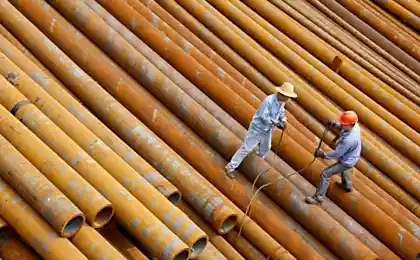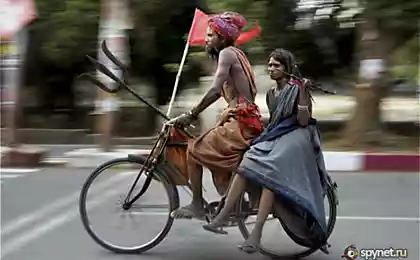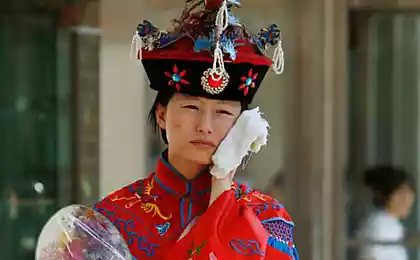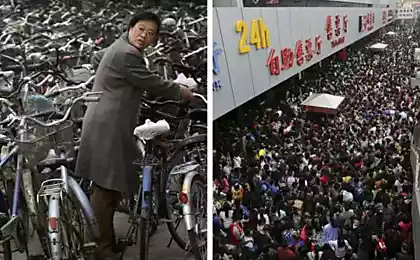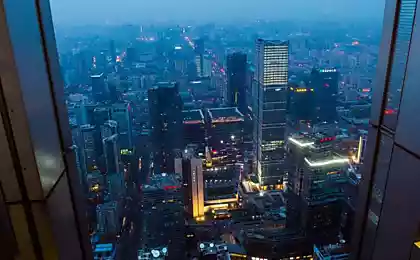3410
Interesting facts about Beijing

Beijing, a popular sound that different from writing (Beijing - Beijing), is the capital of the People's Republic of China and one of the most densely populated cities in the world. It is located in the northern region of China.
Beijing - is a political, cultural and educational center of the country, it is the second largest after Shanghai.
Here are the main offices of the largest companies that belong to the country, and he is considered the largest transport hub with a vast network of highways, railways, highways that connect Beijing with various parts of the country and the rest of the world.
Beijing is famous for its temples and tourist sites, it plays an important role in the cultural life of the country. He was and remains a cultural and political center of China for many centuries.
Beijing is home to many World Heritage sites and occupies an important place in Chinese culture and economy.
___________________________________________
Country: China
Languages: Chinese
Areas: 14 (2 District)
The area of the municipality: 16, 801.25 square meters. km
The population of the municipality: 19, 612, 368 (2010 g)
___________________________________________
Facts about Beijing:
Beijing - the capital of the People's Republic of China, one of the most densely populated cities in the world. It is composed of 14 districts and 2 counties.
The first story of the Beijing appeared in the book of Marco Polo, the Italian traveler of the 13th century. He described the civilized people and well-organized life of the city.
Beijing - this is not the first name of the city. He wore different names, among them Ji, Yanjing, Youzhou, Fanyang, Guangyang, Nanjing, Dadu (Daidu), Zhongdu, Khanbaliq (Cambaluc) and Beiping.
The Chinese expression "four great ancient capital" refers to Beijing. Over the centuries, it is the cultural, economic and political center of the country.
Beijing consists of two Chinese characters 'bei' (北), which translates as "north" and 'jing' (京), which translates as "capital". Literal value of Beijing - the northern capital.
Beijing is located in the North China Plain region, surrounded by mountains to the north, north - west and west sides. These mountains protect the city and the agricultural areas of the sprawling desert.
Beijing is known for a large number of temples, palaces and rich high stone walls. The city occupies an important place in the Chinese tourism industry.
The earliest traces of human settlement in the area is in a cave on the mountain dragon bones.
Beijing - is the ultimate northern point of the Grand Canal of China.
The largest rivers flowing through Beijing, called the Yongding and Chaobai.
In 2008 Beijing Olympic Games adopted by the official emblem of "Dancing Beijing". Winning 51 gold medals, the Chinese Olympic team won the maximum number of gold medals in the Olympic Games 2008.
Beijing National Airport second in the world in passenger traffic and workload.
Beijing is the first post-industrial city in China. And in second place after Tokyo by the number of representations of the companies of the world.
"Forbidden City" - the great palace of the Ming and Qi is located in the heart of Beijing. It kept the imperial collections of Chinese art.
Temple of Heaven, UNESCO World Heritage Site located in the south-eastern part of Beijing. Other major temples of the city: the Temple of Earth (Ditan), Temple of the Sun (Ritan), Temple of the Moon (Yuetan), Dongyue, Tanzhe, Miaoying, White Cloud Temple, Yonghe, Wanshou, Fayuan, and Confucius Temple.
The city also is "Cathedral of the Immaculate Conception", which was built in 1605, it is the oldest Catholic church in Beijing. Mosque Niujie, built around a thousand years ago, is the oldest mosque in the city.
Imperial Tombs of the Ming and Qing dynasties, included in the UNESCO World Heritage List, they consist of thirteen tombs of the kings of the Ming Dynasty.
Siheyuans - are special types of houses that were built in Beijing. These houses have a courtyard shared by the surrounding buildings.
Beijing feature is the large number of bicycles. Bicycling is a popular means of transport in Beijing, even during the boom cars.
According to the official 2006 census, 10, 35% of the population carries the surname Wang, the most popular name in Beijing.
A significant majority of the population belongs to Beijing Han ethnic group. Manchu, Hui and Mongolian groups are ethnic minorities.







